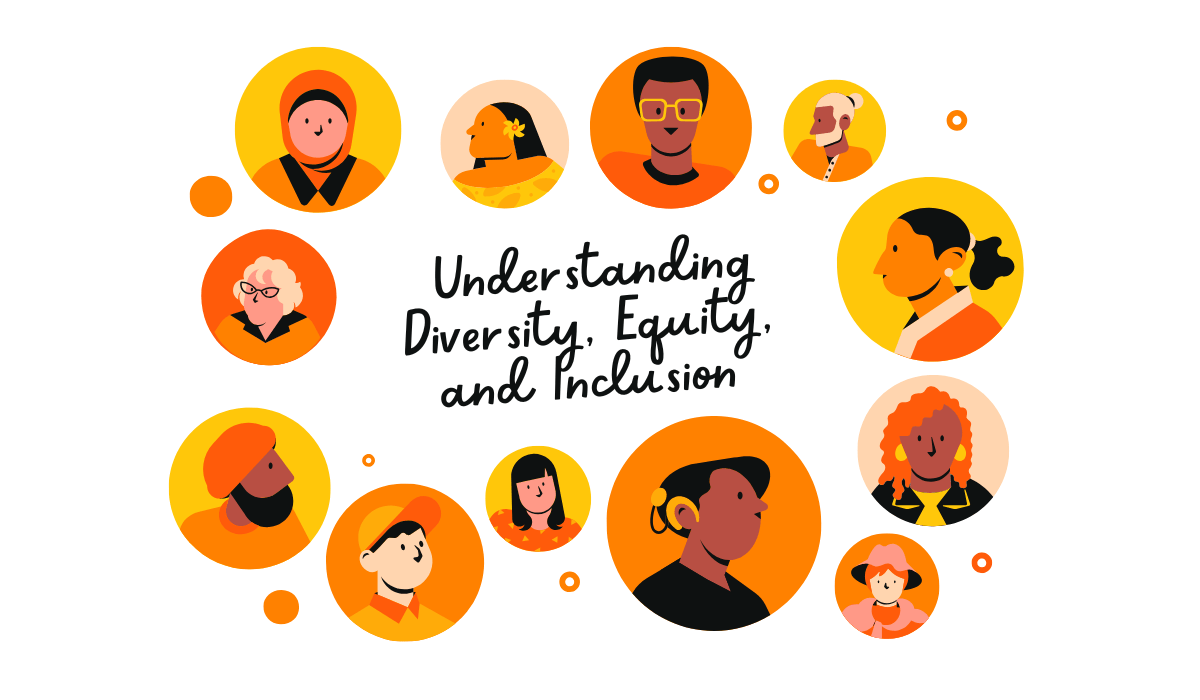DEI means Diversity, Equity, and Inclusion. Diversity recognizes and values differences. Equity ensures fair treatment and access. Inclusion fosters a sense of belonging. Understanding DEI, meaning Diversity, Equity, and Inclusion, is crucial for a fair and inclusive environment.
Key Takeaways
-
Diversity, Equity, and Inclusion (DEI) are essential principles for fostering a fair workplace, impacting innovation, employee engagement, and financial performance.
-
Implementing effective DEI initiatives involves setting clear goals, addressing unconscious biases, and engaging all employees, while leadership commitment is crucial for success.
-
Challenges to DEI efforts include resistance, high attrition rates in DEI roles, and political pushback, which necessitate ongoing commitment and transparent communication about the value of DEI.
Defining DEI: Diversity, Equity, and Inclusion
Diversity, Equity, and Inclusion, commonly known as DEI, are three interconnected principles forming a fair and just society. Diversity equity inclusion emphasizes the recognition and valuing of differences, ensuring fair opportunities for all, and fostering a welcoming environment within the workplace. Equity, diversity, and inclusion are essential for creating an inclusive culture.

Diversity in the workplace encompasses differences in race, ethnicity, national origin, gender diversity, sexual orientation, age, socioeconomic class, physical ability, veteran status, parental status, racial preferences, and a diverse workforce, among others.
Equity provides fair treatment and access by addressing systemic inequalities and allocating resources based on individual needs to level the playing field.
Inclusion creates an environment where everyone feels valued, respected, and able to contribute fully, actively welcoming and valuing diverse individuals and groups.
These interconnected concepts collectively impact the creation of a fair and just society. Understanding DEI fosters an inclusive environment where everyone can thrive.
The Importance of Diversity in the Workplace
Diversity in the workplace is not just about representation; it’s about harnessing a range of talents and experiences to drive innovation and success. Companies with diverse leadership show improved financial performance linked to innovation, highlighting the tangible benefits of embracing diversity.
Diverse teams facilitate easier problem-solving and the development of unorthodox approaches. The variety of perspectives brought to problem-solving leads to enhanced innovation, allowing companies to stay ahead of the curve in a competitive market.
Research shows that diverse teams enhance decision-making by up to 87%, outperforming individual decision-making. This is because diverse backgrounds provide new perspectives that can improve processes and generate better ideas and solutions.
Moreover, a rich employee experience is achieved through diverse teams, promoting collaboration and learning. Inclusive teams enable employees to offer different ideas and perspectives, fostering a more dynamic and creative work environment.
Ultimately, workplace diversity leads to improved financial performance, enhanced innovation, better decision-making, and a more engaging employee experience.
Equity: Ensuring Fairness and Justice
Equity aims to achieve fair treatment and equal opportunities for everyone by addressing individual needs. While equality offers the same opportunities to everyone, equity allocates resources based on individual needs, ensuring that everyone has the same chance to succeed.
Equity aims to achieve justice by eliminating systemic issues, recognizing barriers and advantages within social structures, and addressing them for fair circumstances.
Equity seeks to provide resources based on individual needs to rectify historical disparities. Structured hiring processes, for example, help mitigate unconscious biases and ensure equitable treatment of all candidates.
Equity efforts focus on addressing root causes of societal disparities, requiring employers to recognize barriers and advantages for equal circumstances.
Promoting equity involves fair resource distribution, addressing systemic issues, and creating opportunities for those with less access.
Inclusion: Creating a Sense of Belonging
Inclusion manifests as the active practice of welcoming and valuing diverse individuals and groups. It involves creating a culture where everyone feels welcome and invited to contribute, fostering a sense of belonging among all employees and encouraging them to embrace diversity through inclusion programs. Inclusion refers to the commitment to ensuring that all voices are heard and valued.
Belonging emerges from an equitable system, creating a supportive, respectful, collaborative, and participative work environment.
A culture of equity and inclusion reduces feelings of underrepresentation, leading to higher productivity and employee retention.
Effective DEI leaders communicate the value of diversity and foster inclusivity by visibly supporting and recognizing behaviors that promote it.
Inclusion fosters a sense of belonging where everyone feels valued and respected, enhancing employee engagement, retention, and overall success.
Benefits of Implementing DEI Initiatives
Organizations that focus on DEI practices tend to attract and retain employees who feel valued and engaged. Inclusion leads to a more engaged workforce, contributing to higher productivity and employee retention.
Implementing DEI leads to higher revenue, improved profitability, and better employee performance as diverse teams generate creative ideas and solutions.
Belonging in the workplace significantly improves job satisfaction and performance, enhancing employee commitment and motivation.
Supporting diversity positively impacts a company’s reputation and brand perception, leading to stronger relationships with customers.
Investing in DEI leads to better financial performance, increased returns on sales, and a more engaged and productive workforce.
Challenges in Achieving DEI Goals
Resistance to DEI initiatives arises when these efforts challenge established power dynamics. Diversity training faces challenges like ineffectiveness, criticism, and limited racial diversity progress. Some institutions respond by removing ‘diversity’ from titles and ending related initiatives, while legislative measures aim to limit DEI training, causing uncertainty.
Texas banned state funds for DEI programs in universities and colleges, illustrating significant political pushback. The anti-DEI movement influences academia, politics, and business.
The attrition rate for DEI roles is twice as high as for non-DEI positions, presenting a significant hurdle. Achieving DEI goals faces challenges like resistance, legislative pushback, and high attrition rates, but continued effort and commitment are essential.
Strategies for Effective DEI Implementation
A successful DEI strategy is customized to the organization’s unique needs and context. Clear goals at the start of initiatives ensure measurable effectiveness and stakeholder alignment.
Creating an inclusive environment addresses unconscious biases and fosters open communication. Effective strategies include mentorship programs and promoting diversity in leadership roles.
Engaging majority groups in DEI initiatives fosters inclusion and cooperation. Equity practices should consider individual circumstances over uniform policies.
Everyone must take responsibility for building an inclusive culture. DEI plans can include recruiting, retaining personnel, fostering communication, training, and regulating conduct.
Effective DEI implementation requires tailored strategies, clear goals, addressing unconscious biases, and engaging all employees.
Role of Leadership in Promoting DEI
Leadership commitment is crucial for creating and sustaining an inclusive culture. Aligning DEI initiatives with business objectives ensures meaningful contributions to organizational goals.
Leaders foster an inclusive culture by visibly supporting and recognizing behaviors that promote diversity. Effective DEI leaders must communicate the value of diversity clearly.
Clear communication from leaders about DEI engages employees and ensures everyone understands its value.
Leadership’s role in promoting DEI is crucial. Commitment to DEI, aligning initiatives with business objectives, and fostering an inclusive culture create a more diverse and successful workplace.
Measuring the Impact of DEI Efforts
Clear DEI goals based on data and employee feedback are crucial for tracking progress and ensuring relevance and effectiveness.
Focusing on key metrics rather than overwhelming data provides more precise insights into DEI strategies’ impact, allowing continuous improvement.
Metrics such as employee satisfaction surveys, diversity ratios, and retention rates help identify areas of improvement and measure DEI initiatives’ success.
Regularly reviewing and adjusting DEI goals based on metrics ensures initiatives remain effective and aligned with organizational objectives, sustaining DEI efforts.
Measuring DEI efforts requires clear goals, key metrics, and continuous improvement based on data and feedback to ensure effectiveness and impact.
Addressing Criticism and Controversy Surrounding DEI
Critics argue DEI programs, which have been criticized dei, distract from performance and unfairly benefit underrepresented groups, creating division. Some conservatives claim DEI programs lead to reverse discrimination against whites, fueling controversy.
Political and public reactions to DEI initiatives are mixed, with legislative measures introduced to limit DEI training, causing uncertainty. For example, Texas banned state funds for DEI programs, reflecting political pushback.
Major corporations like Ford and Harley-Davidson have scaled back DEI initiatives amid increasing criticisms, illustrating public and political backlash. This trend is also seen in academic institutions and other sectors.
Inactivity in the Senate regarding DEI-related legislation reflects the contentious nature of these initiatives. Critics like George Leff claim DEI initiatives are authoritarian and anti-meritocratic, illustrating a common perception among detractors.
Addressing DEI criticism and controversy requires acknowledging concerns, engaging in open dialogue, and demonstrating tangible benefits to navigate challenges and promote DEI.
Summary
In summary, understanding and implementing Diversity, Equity, and Inclusion (DEI) initiatives are crucial for creating a fair, innovative, and successful workplace. From defining the core components of DEI to exploring the benefits, challenges, and strategies for effective implementation, this guide has provided a comprehensive overview of the importance of DEI.
By embracing DEI principles, addressing the challenges, and promoting open dialogue, organizations can create a more inclusive and equitable environment where everyone feels valued and has the opportunity to succeed. Remember, the journey towards diversity, equity, and inclusion is ongoing, and it requires continuous effort and commitment from everyone involved.
Frequently Asked Questions
What does DEI stand for?
DEI stands for Diversity, Equity, and Inclusion, focusing on valuing differences, ensuring fair opportunities, and creating a welcoming workplace environment.
How does diversity benefit the workplace?
Diversity significantly enhances workplace creativity and innovation by incorporating a multitude of talents and experiences, which in turn leads to improved decision-making and financial performance. Embracing diversity ultimately contributes to a more dynamic and effective work environment.
What is the difference between equity and equality?
The difference between equity and equality lies in their approach to resource allocation; equality provides everyone with the same opportunities, whereas equity considers individual needs to ensure fair chances of success for all.
Why is leadership important in promoting DEI?
Leadership is crucial in promoting DEI because it drives the alignment of diversity initiatives with organizational goals and cultivates an inclusive culture, ensuring that all employees feel a sense of belonging. Effective leadership commitment not only inspires action but also sustains these initiatives over time.
How can organizations measure the impact of DEI efforts?
Organizations can effectively measure the impact of DEI efforts by establishing clear goals, utilizing data and employee feedback to track key metrics, and engaging in ongoing analysis to inform improvements. This approach ensures that DEI initiatives are both actionable and responsive to the needs of the workforce.

